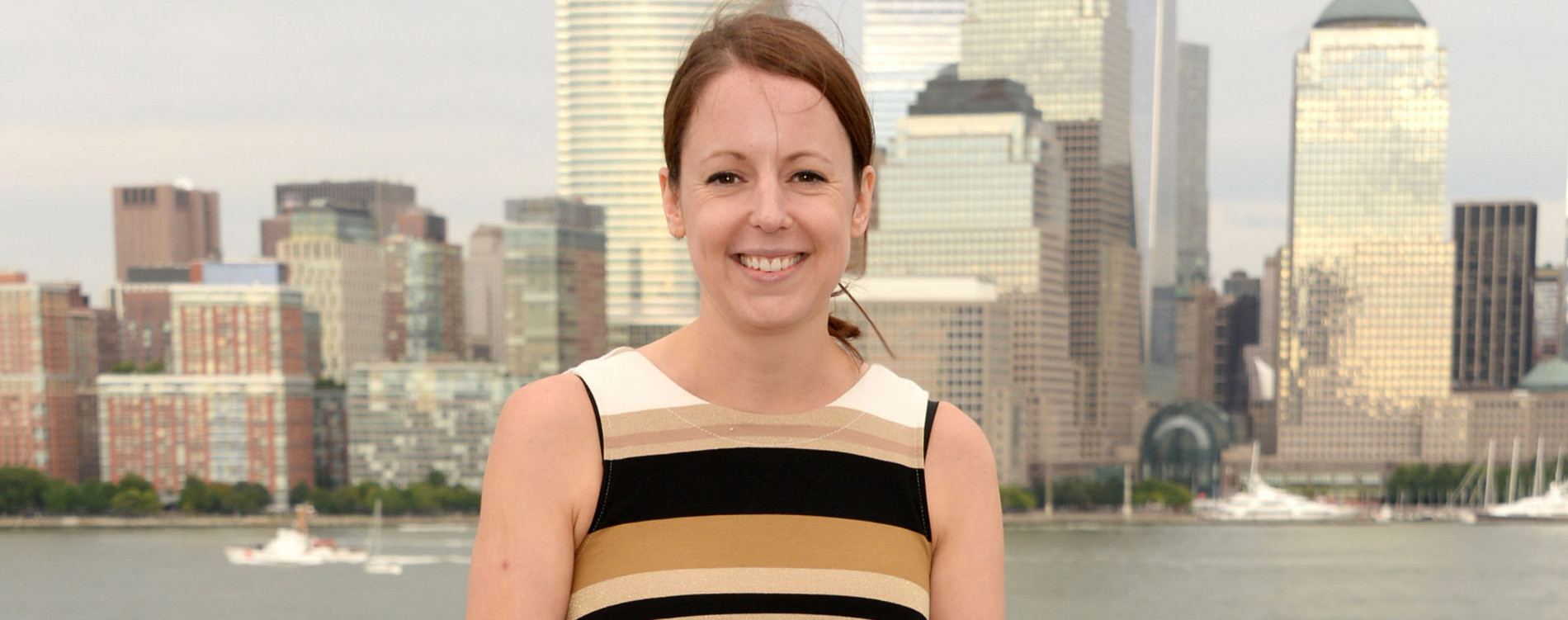Rachel Lane, PhD, (former) associate director of scientific affairs at the Alzheimer’s Drug Discovery Foundation (ADDF), shares how she chose the field, what drives her passion for Alzheimer’s research, and why she’s running for Alzheimer’s research in the TCS New York City Marathon.
How did you choose Alzheimer's research?
I earned my doctorate in molecular and cell biology at the University of Sheffield in the United Kingdom and then moved to New York to do my post-doctoral training with Dr. Sam Gandy at the Icahn School of Medicine at Mount Sinai. My research with Dr. Gandy—focused on a genetic link between Alzheimer’s disease and Type 2 diabetes—was my first foray into Alzheimer’s research.
It was the first time I’d had an opportunity to work on translational science—research that was directly linked to developing treatments for human diseases. Working for a physician-scientist, and seeing how his reflections on his patients’ feedback impacted what we were doing in the lab, really drove me forward because I could see a clinical application to the work we were undertaking. When I finished my training, the position at the ADDF opened up and it seemed like the perfect fit. It was an opportunity for me to continue to see my work impact the development of drugs to treat Alzheimer’s disease.
What drives your interest in Alzheimer’s drug discovery?
It’s such a significant unmet need. I’m astounded by the fact that, in this day and age, we have no disease-modifying therapies for a disease that was discovered in 1906. At the same time, we’re at a really exciting stage in Alzheimer’s drug discovery research. The field is accelerating so quickly; I really believe we can have a profound impact on people’s lives with our work.
I’ve met many people in the Alzheimer’s community since joining the ADDF, and I’ve been so inspired by their commitment to helping the ADDF move forward with its mission. It’s devastating to see how the disease is impacting people’s lives, society, and the economy. And it’s even more terrifying to think that it was brushed under the carpet for so many years. I’m so thankful to see that it is finally getting the attention it deserves.
What do you do at the ADDF?
I work as part of the scientific team, coordinating and managing the scientific review process. When we decide to fund a drug discovery program, we work closely with the investigator to develop a scientific work plan and to ensure that they have the resources they need to successfully undertake their program.
In doing this work, we’ve uncovered a significant unmet need. Many of the researchers we meet don’t have the networks within the Alzheimer’s disease space to successfully complete a drug discovery program—and developing a drug to treat Alzheimer’s requires a team of scientists from many disciplines, including chemists, biologists, and pharmacologists.
We’ve developed ADDF ACCESS to provide that network. The platform includes a portfolio of contract research organizations working in the central nervous system space, as well as drug development consultants that can offer additional expertise and educational resources to guide researchers on how a drug discovery program should be designed. The platform also provides access to project management tools to track research progress.
Why don’t researchers already have these networks?
Pharmaceutical companies have worked with contract research organizations for many years, but academic researchers haven’t done as much drug discovery and development. They haven’t built up these networks. Now we’re seeing a shift—a lot of early stage drug discovery development work is happening in academic settings in lieu of pharmaceutical settings, so there’s a new need for access to these kinds of organizations and education about how to work with them.
You’re running in this year’s TCS New York Marathon to raise money for Alzheimer’s research. Have you always been a runner?
I started running in elementary school, doing cross country with my sister. I have really strong memories of running in the bitter cold through mud as high as my knees. I stopped running when I was in college, but picked up again when I began my doctoral program. It was a good way to meet people and a great opportunity for me to go out for an hour or two, switch off, and not think about anything else.
I ran my first marathon last year in Santa Barbara, California. It was a beautiful race but I have always dreamed of running the New York City Marathon.
What made you want to turn your marathon into a fundraising opportunity?
The ADDF is doing such a fantastic job filling a gap in research that is incredibly underfunded. There is no other organization in the world that is so focused on supporting Alzheimer’s drug development work or supporting those risky projects that are too early stage to garner investments from pharmaceutical companies and venture capitalists. The fact that I can do my small part to raise money for the ADDF—while doing something I love at the same time—is incredible.
Do you have a fundraising goal?
I’m hoping to raise at least $4,000, but I’m equally committed to raising awareness for the ADDF. This is the world’s biggest marathon—it’s the perfect opportunity to shine the spotlight on the need for Alzheimer’s drug discovery research.
Inspired by Dr. Lane’s commitment to Alzheimer’s research? Support our team in the TCS New York City Marathon.
